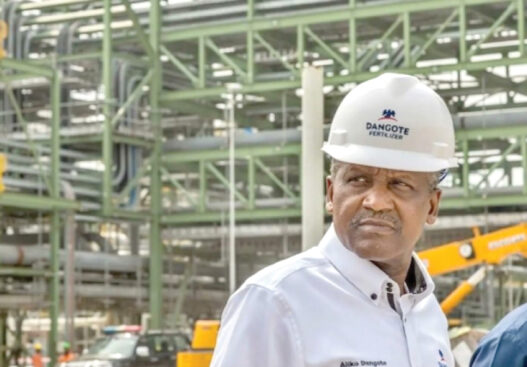Recently, the media was abuzz with comments about the Dangote Petroleum Refinery and Petrochemicals Ltd, which many Nigerians expect to be the solution to the country’s perennial fuel crisis. However, the $20 billion investment is acquiring controversy all its own, with the regulatory agency Nigerian National Petroleum Corporation Limited (NNPCL) leading the charge and raising doubts about its potential to play the anticipated role.
The anxiety is serious enough for oil and gas sector experts to urge the federal government to intervene and resolve any issues in the relationship between NNPCL and Dangote Refineries, in which the state conglomerate has a 20 per cent stake. They argue that supporting the Dangote Refinery’s success may attract more local and foreign investments into Nigeria. Again, this comes to the issue of ease of doing business in Nigeria and the clamour for foreign investors.
The proprietor of the refinery, Alhaji Aliko Dangote, recently, publicly, complained that International Oil Companies (IOC) operating in Nigeria are frustrating his efforts to source crude locally. This shocking revelation is putting pressure on the refinery to source its oil stock outside the shores of Nigeria. For the records, Dangote Refinery, which will process 650,000 barrels per day (BPD) at full capacity, is Africa’s largest oil refinery and the world’s largest single-train facility.
The refinery’s total storage capacity is 4.5 billion litres, sufficient to cover 20 days of Nigeria’s crude requirement and store products equivalent to 15 days of Nigeria’s petrol consumption. The refinery would produce 53 million litres of petrol and 1.1 million tonnes daily. It aims to become the leading supplier of foreign exchange in the FX market soon, as it targets $30 billion in revenues by 2025. With all these laid-out plans, the least that can be expected of the powers- that -be in the country’s oil and industry is to support this obvious patriotic drive.
But the reported comments by the Chief Executive Officer of Nigerian Midstream and Downstream Petroleum Regulatory Authority (NMDPRA), Farouk Ahmed, seem to be out to dampen Nigerians’ hopes. He claimed that the refinery was still in the pre-commissioning stage and had not been licensed yet to go into full operation.
He alleged that Dangote requested that NNPCL suspend or stop all importation of petroleum products, especially automotive gas oil (AGO) or jet kero, and direct all marketers to the refinery. Even more serious is the allegation that the AGO quality in sulphur is the lowest regarding West Africa’s requirement of 50 ppm. “So, in terms of quality, their quality is much more inferior to the imported product.”
By this statement, it is obvious that NNPCL and its affiliates prefer a continuation of the import substitution policy that has crippled the nation’s refineries in Port Harcourt, Kaduna and Warri and drained its foreign reserve.
These multi-billion-dollar investments are not only lying idle and unutilised but also an albatross on the nation’s resources in terms of phoney turn-around maintenance (TAM) processes, the hiring and payment of salaries and the emolument of staff who have virtually no work to do.
It must be noted that the Dangote refinery is a work in progress regarding quality control. Even if the NNPCL allegation is true, some of the observed shortfalls can be rectified as the refinery’s operations commence in earnest. The refinery’s management acknowledged that the essence of test operations is to identify any lapses and make arrangements to correct them. Dangote refinery is publicly recognised as a technologically – advanced refinery that can distil and treat most crude oil to a standard sulfur level when operating at full capacity. However, the credibility of Farouk Ahmed’s assertions is attracting intense interrogation as NNPCL has no laboratory facility to authenticate the quality threshold it desires.
Nevertheless, this newspaper believes that the federal government and its agencies should continue to support local production to ensure Nigeria’s economic growth. Given this perceived hostility towards Nigerian investors, the dream of attracting foreign investors will remain.
Furthermore, the tragedy of this development is the politicisation of what is essentially a local investment that has the potential to create jobs and generate revenue for the country. Allowing the Dangote refinery to keep importing crude oil can only be a shot in the foot that defies all known expectations of how the government ought to run its affairs in such a critical sector.
In the meantime, we as a newspaper are enamoured with President Bola Tinubu’s assurance that the Dangote Refinery will not fail. We are also relieved that the House of Representatives has expressed its readiness to investigate allegations that products from the Dangote Refinery are inferior to imported ones. They plan to test the refinery’s products as part of their investigation.
We believe that despite political and other challenges, the pertinence of supporting the $20 billion Dangote Refinery cannot be over-emphasised. It is the right thing to do as the nation embarks on the seemingly chimerical quest to attract more local and foreign investments into Nigeria.

